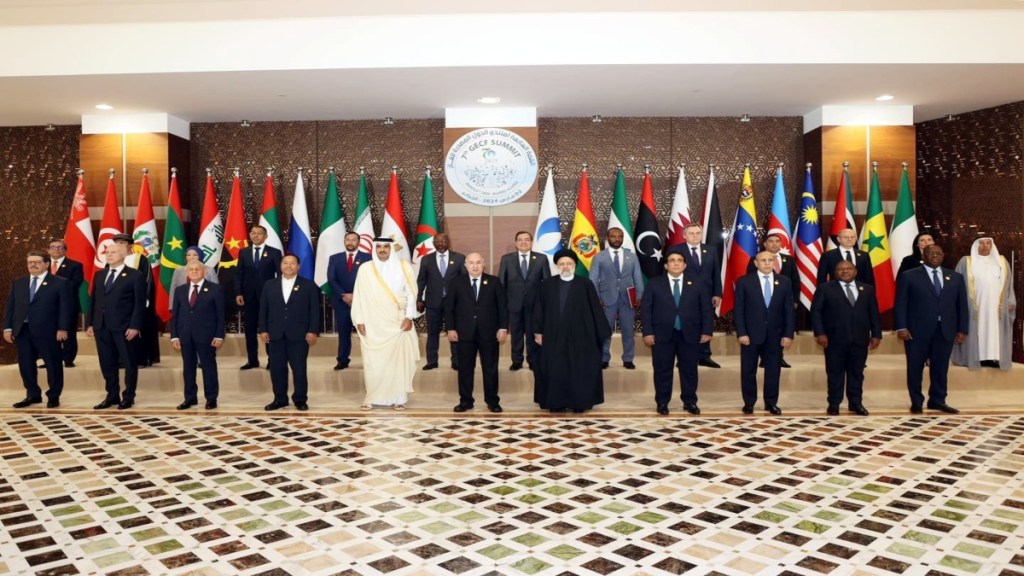In the closing declaration of the 7th Gas Exporting Countries Forum (GECF) summit in Algeria, member nations made strides in cooperative efforts to address volatility in market demand. This significant gathering convened heads of state and government from 14 countries, including prominent players such as Russia, Iran, Qatar, Venezuela, alongside several guest nations.
Against the backdrop of waning demand for oil and gas and intensifying competition from renewable energy sources, this year’s summit centered around the theme of “Natural Gas for a Secure and Sustainable Future.” Algerian President Abdelmadjid Tebboune, serving as the host, reaffirmed his nation’s commitment to collaborative action with member states, aimed at fortifying the position of gas as a sustainable and environmentally friendly resource.
The Algiers Declaration, stemming from the 7th GECF Summit held on March 2, 2024, in Algeria, stands as a testament to the spirit of cooperation and solidarity among member nations navigating the intricate terrain of global energy security. With leaders from GECF member countries at the helm, the summit served as a platform for robust deliberations on critical challenges and opportunities shaping the natural gas sector.
Amidst the global call for sustainable energy transitions, the Algiers Declaration reaffirms the fundamental principles guiding member nations’ actions within the GECF framework. Foremost among these principles is the acknowledgment of member countries’ sovereign rights over their natural gas resources, emphasizing the imperative of autonomy and equity in resource management. This foundational tenet not only safeguards the interests of member nations but also fosters an environment conducive to cooperation and collaboration.
At the heart of the summit discussions lay the imperative of fostering cooperation and dialogue among member nations to tackle shared challenges and leverage emerging opportunities in the natural gas sector. From advancements in technology to capacity-building initiatives, member nations underscored the importance of collective endeavours aimed at bolstering the resilience and stability of natural gas markets. By championing transparency and fairness in trade practices, member nations seek to cultivate an ecosystem conducive to sustainable growth and development in the sector.
Furthermore, the Algiers Declaration sheds light on the multifaceted role of natural gas in addressing pressing global challenges, including climate change and sustainable development. Recognized as a clean and versatile energy source, natural gas holds immense potential to drive economic growth, foster social progress, and mitigate environmental degradation. Member nations commit to harnessing the transformative power of natural gas to advance shared goals of sustainable development and prosperity for all.
Despite acknowledging the complex geopolitical and economic factors shaping the natural gas market, member nations remain resolute in their commitment to ensuring the security of both demand and supply. Long-term contracts and stable pricing mechanisms emerge as indispensable tools for promoting market stability, attracting investments, and mitigating risks associated with market volatility. By fostering an environment conducive to investment and innovation, member nations aim to bolster the resilience of natural gas markets against external shocks and disruptions.
The accession of new member countries, including Mozambique, Mauritania, and Senegal, signifies a significant milestone in the evolution of the GECF as a global platform for energy cooperation and dialogue. This expansion not only underscores the growing influence and relevance of the Forum but also reaffirms its commitment to fostering inclusivity and diversity in shaping the future of the natural gas sector.
In essence, the Algiers Declaration represents a significant stride towards advancing global energy security and sustainability. By reaffirming their commitment to shared values and objectives, member nations of the GECF aim to navigate the evolving energy landscape with resilience, cooperation, and foresight, ensuring a brighter and more sustainable future for generations to come.

